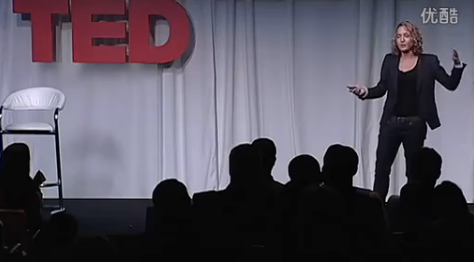But I want to suggest that there's also a fifth one.
但我想說還有第五階段。
And I think of this as a kind of existential wake-up call.
我想這是一種自我覺醒。
That night in my apartment, after I got done kicking myself and so forth, I lay in bed for a long time, and I thought about skin grafts.
那晚我在公寓里反反復復討伐自己后,我躺在床上很久,想著植皮。
And then I thought about how, much as travel insurance doesn't cover acts of God, probably my health insurance did not cover acts of idiocy.
然后我想到旅行保險可不保自然災害,那么我的醫療保險自然也不包括自己干的蠢事。
In point of fact, no insurance covers acts of idiocy.
沒有什么保險保自己干的蠢事。

The whole point of acts of idiocy is that they leave you totally uninsured; they leave you exposed to the world and exposed to your own vulnerability and fallibility in face of, frankly, a fairly indifferent universe.
愚蠢的結果就是自己完全無保障;你完全袒露在這個世界面前,袒露在你自身的脆弱和不可譜面前,事實上,這是個相對無情的世界。
This is obviously an incredibly painful experience.
這很明顯是個十分痛苦的經歷。
And I think it's particularly painful for us now in the West in the grips of what I sometimes think of as a Control-Z culture-Control-Z like the computer command, undo.
我想這對于西方人來說,這種Control-Z文化是無比痛苦的—Control-Z就是電腦鍵盤上的命令,撤消。
We're incredibly used to not having to face life's hard realities, in a certain sense.
在某種意義上,我們曾經不用去面對殘酷的現實。
We think we can throw money at the problem or throw technology at the problem-we can undo and unfriend and unfollow.
我們以為用錢或者科技就能解決問題—我們能撤消,能解除好友關系,取消關注。
And the problem is that there are certain things that happen in life that we desperately want to change and we cannot.
但問題是生活中有很多我們迫切地期望改變,但是不行。
Sometimes instead of Control-Z, we actually have zero control.
有時候不是撤消,而是無法控制。
And for those of us who are control freaks and perfectionists-and I know where of I speak-this is really hard, because we want to do everything ourselves and we want to do it right.
而對于那些控制狂和完美主義者—我知道我說自己呢—這是非常糟糕的,因為我們想親力親為每件事并絕對做好。












